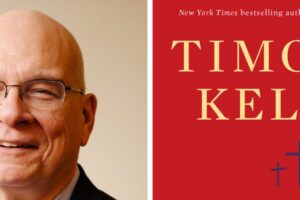As one of my good friends says: “’God loves all his children’ is somehow forgotten. But we paraphrase a book written thirty-five-hundred years ago.” Actually, Macklemore said that, and he’s not one of my good friends, but I like to think if he got to know me he would really like me—but I digress. I think, though, if Macklemore and I got frozen yogurt together he would tell me something along the lines of how unfair it is that Christians suppress the rights of gay couples who want to get married based on our reading of Leviticus. I mean after all, it’s an old and outdated book that we ignore 75% of the time, right?
Recently I was reading Kevin DeYoung’s book: What Does the Bible Really Teach about Homosexuality? DeYoung offers 6 very helpful reason as to why Leviticus is still pertinent to us today that I think are helpful for much more than just homosexuality.
- “No disciple of Jesus should start with the presumption that the Mosaic commands are largely irrelevant.” Can I be cliche for a moment and quote II Timothy 3:16-17? “All Scripture is breathed out by God and profitable for teaching, for reproof, for correction, and for training in righteousness, that the man of God may be complete, equipped for every good work.” If you are a disciple of Jesus do you really believe this? We haven’t given up on Leviticus and the rest of the Old Testament, the entire Bible equips us for every good work. The common critique is that we pick and choose what we read in Leviticus— we condemn homosexuality, but we do eat shellfish, so aren’t we being hypocritical? This is far from the case. As DeYoung says “All foods have been declared clean (Mark 7:19; Acts 10:8-11:18); holy days have been rendered optional (Romans 14:5-6); the entire sacrificial system of temple, priest, and sacrifice has been superseded (Hebrews 7:1-10:18).”
- “There is no indication in the New Testament that Leviticus should be treated as particularly obscure or peripheral.” I think Leviticus is largely treated this way because of laws that are entirely foreign to us today like prohibitions on bacon and beard trimming, but the New Testament is full of references to Leviticus. Perhaps you have heard “you shall love your neighbor as yourself” from Leviticus 19:18.
- Paul uses Leviticus to create his term “men who practice homosexuality” referring back to Leviticus 18:22 and 20:13.
- “Leviticus uses strong language in denouncing homosexual behavior, calling it ‘an abomination.’” I don’t think it is faithful hermeneutics to equate beard trimming to homosexuality just because they are both in Leviticus. I know 500 or so words does not exhaust this topic, but suffice it to say: Leviticus does not treat shellfish or beard trimming the same way it treats homosexuality.
- “The reference to a woman’s menstrual period (18:19; 20:18) should not call into question the rest of the sexual ethic described in Leviticus 18 and 20.” Call me a prude, but this is not my favorite argument to write about, but alas I’ll try to be faithful to DeYoung’s book. I think the main argument DeYoung is addressing is “doesn’t Leviticus treat sex during menstruation the same as homosexual behavior?” Well no, as DeYoung puts it: “there is a clear profession in both chapters of sexual sin deviating in increasing measure.” In short, Leviticus does not consider adultery as great of an offense as having sex with an animal. Additionally, DeYoung notes how menstruation was not a sin it was a matter of ritual uncleanness (see point 1).
- “Apart from the question of sex during menstruation, the sexual ethic in Leviticus 18 and 20 is squarely reaffirmed in the New Testament.” Although we do not follow the Mosaic covenant like Israel did, it is not void. Jesus both declared all foods clean, but still held to the sexual ethic of Leviticus.
I hope this short (and selective) book review (1) encouraged you to consider and respect Leviticus as applicable to the debate of homosexuality, but more importantly to the Christian life; and (2) made you want to check out DeYoung’s book. I’ve found that a lot of Evangelicals are confused on how to tread through this sticky issue. While DeYoung’s book is not the magnum opus of the debate, it is nonetheless very helpful in figuring out where you stand on the issue. Agree, disagree, or confused I recommend this book if you are interested in what the Bible really teaches about homosexuality.





Leave a Reply
Your email is safe with us.